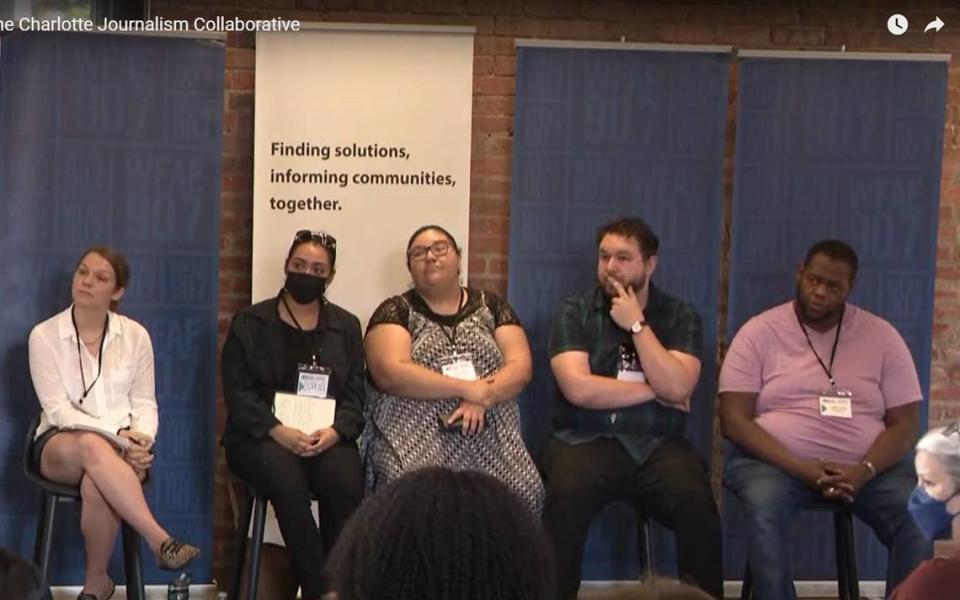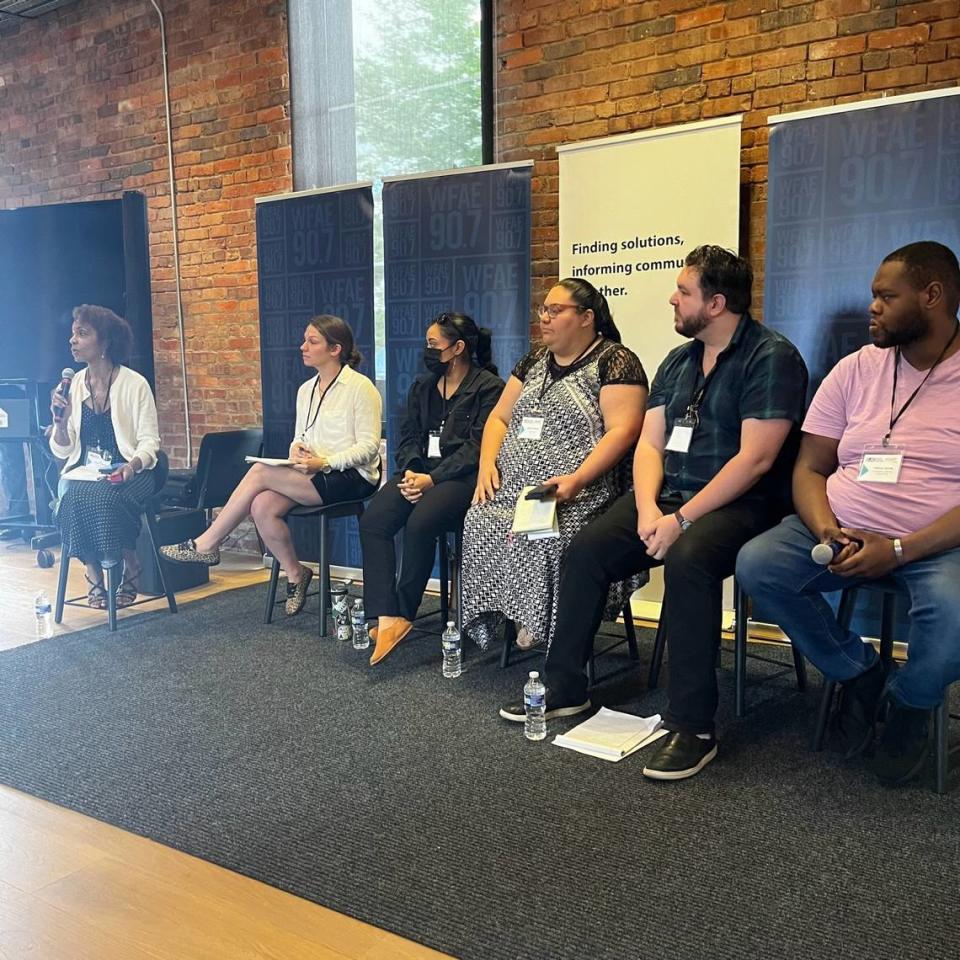‘Who should control housing?’: Advocates seek renters’ equity with new NC Tenants Union
In our Kaleidoscope newsletter, we cover race, culture and equity in Charlotte and showcase a multitude of people and experiences that make the Queen City special. Subscribe for free. Story idea? Lvernonsparks@charlotteobserver.com
Celeste Hart came to a local community forum on housing looking for answers and validation from those on a featured panel about a new statewide tenants’ union.
During the Q&A portion, Hart announced she had recently been evicted after living in a rented home in Charlotte for 13 years — and it happened despite knowing where to find resources for renters and how to research tenants’ rights laws.
“I know the laws. I fought this landlord (in court) for almost 18 months,“ Hart cried out, questioning what this new tenants’ union could do for her. “I wanted to see if these laws worked and they absolutely don’t when you are by yourself.”
The panel, among a few during the 2024 Local News Impact Summit hosted by the Charlotte Journalism Collaborative on May 16, included Nick MacLeod, the executive director of the recently formed North Carolina Tenants Union.
He presented, likely for the first time in front of a fired-up audience, why this union emerged as a voice for renters, how it came together and what it seeks to do for tenants around the state.

“Ultimately our goal is to change the underlying state law that really enshrines an out of balance with the power dynamic between tenants and landlords, where landlords have dramatically more power,” MacLeod said.
Launched in April, the North Carolina Tenants Union is pushing for housing as a basic human right, according to its website. Comprising six member local networks, the group has affiliates in Asheville, Charlotte, New Bern, New Hanover, Raleigh-Durham and Winston-Salem.
With representation on the NCTU board from each of these local affiliates, among some big picture goals are to stop arbitrary evictions, stop rent gouging, expanding and reforming code enforcement to support tenants and to force landlords, who tend to be absent, to make critical repairs, members said.
Other goals are to democratize public housing authorities, create co-op housing models and help tenants have more power in negotiating rent and lease terms.
“The power of the union is the members,” MacLeod said.
Census data show more than 1.4 million households across North Carolina are renters. In Mecklenburg County that drills down to 213,411 households that rent. In 2023, Mecklenburg County reported that eviction filings increased in excess of 40%, resulting in nearly 7,000 additional Mecklenburg County households facing housing insecurity.
“There are people all over the state going through the same thing,“ Jessica Moreno, with Action NC and the representative for Charlotte, told attendees. “We want to have a body where tenants can (access) info and have a resource. By organizing and through organizing we will level the playing field. Who should control the housing? The people who live in it.”
Moreno also shared that organizing can be a faster and even more efficient way to get some initial support instead of hiring a lawyer upfront.

Be educated on tenants’ rights
Ismaail Qaiyim, a Charlotte-based lawyer also on the panel, explained while there is no current law to prevent rent increases, organizing with others can go a long way.
“One of the most important things in any organizing campaign ... is the education piece,” he said. “It’s extremely important (for) every citizen ... to know what your rights are as a tenant. You have a right to live in a place that is safe and habitable.”
Qaiyim added, while Charlotte needs a right-to-counsel measure, which means the city would pay for eviction defense cases, Mecklenburg County already has that provision. Right-to-counsel legislation has been enacted in many states.
Both the county and Charlotte have minimum housing code and the state has other consumer protection laws, which tenant-landlord relationships fall under, that may be leveraged by renters during eviction cases, he said.
Average prices to rent in the Charlotte-Mecklenburg region can vary depending on one’s ZIP code. In most Charlotte neighborhoods, rents can average anywhere from $1,725 to $3,500, with an average of about $1,900, per a Charlotte Observer analysis.
Affordable housing complexes may be somewhat cheaper and have income benchmarks, but in many communities with larger Black and brown populations, finding a stable rental rent has been an issue for years.
Even among those with high incomes to rent in any neighborhood, spiking rental increases and absentee landlords are affecting many, said Moreno.
“Charlotte’s role is to continue to build tenant power and now having more support on the statewide level,” Moreno said previously in an email. “Traditionally Black and brown communities are most affected. However, with the corporate takeover of housing, it really affects everyone.”
Members encourage renters to reach to one of the local affiliates for assistance.
In its third year, the Local News Impact Summit is a joint effort of the Charlotte Journalism Collaborative comprising several news organizations, including The Charlotte Observer and other local organizations. Funded by the Knight Foundation, its goal is to improve local journalism and encourage greater connection between reporters and Charlotte residents.
The Summit was held at WFAE, a Collaborative member, at its studios on 7th Street.

